Abstract
To explore the hypothesis that mental retardations are in part genetotrophic diseases (diseases in which the genetic pattern of the afflicted individual requires an augmented supply of one or more nutrients such that when these nutrients are adequately supplied the disease is ameliorated), we carried out a partially double-blind experiment with 16 retarded children (initial IQs, approximately 17-70) of school age who wee given nutritional supplements or placebos during a period of 8 months. The supplement contained 8 minerals in moderate amounts and 11 vitamins, mostly in relatively large amounts. During the first 4- month period (double-blind) the 5 children who received supplements increased their average IQ by 5.0-9.6, depending on the investigator, whereas the 11 subjects given placebos showed negligible change. The difference between these two groups is statistically significant (P less than 0.05). During the second period, the subjects who had been given placebos in the first study received supplements; they showed an average IQ increase of at least 10.2, a highly significant gain (P less than 0.001). Three of the five subjects who were given supplements for both periods showed additional IQ gains during the second 4 months. Three of four children with Down syndrome gained between 10 and 25 units in IQ and also showed physical changes toward normal. Other evidence suggests that the supplement improved visual acuity in two children and increased growth rates. These results support the hypothesis that mental retardations are in part genetotrophic in origin.
Full text
PDF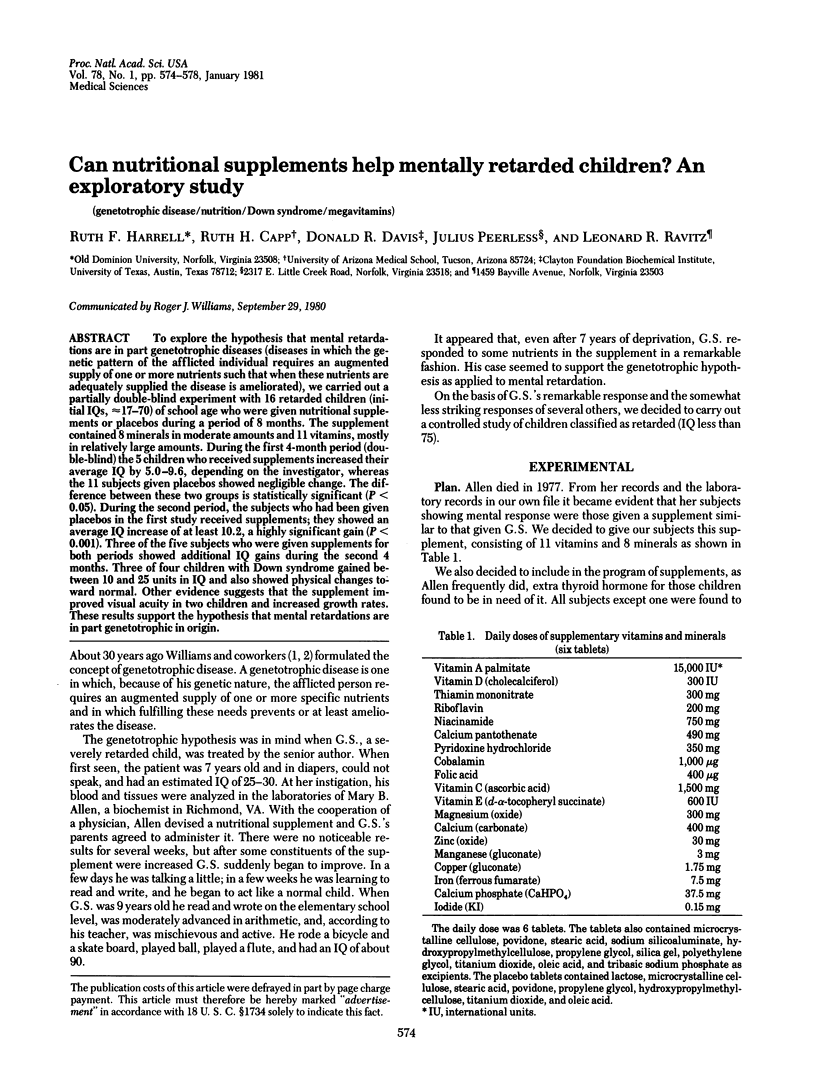
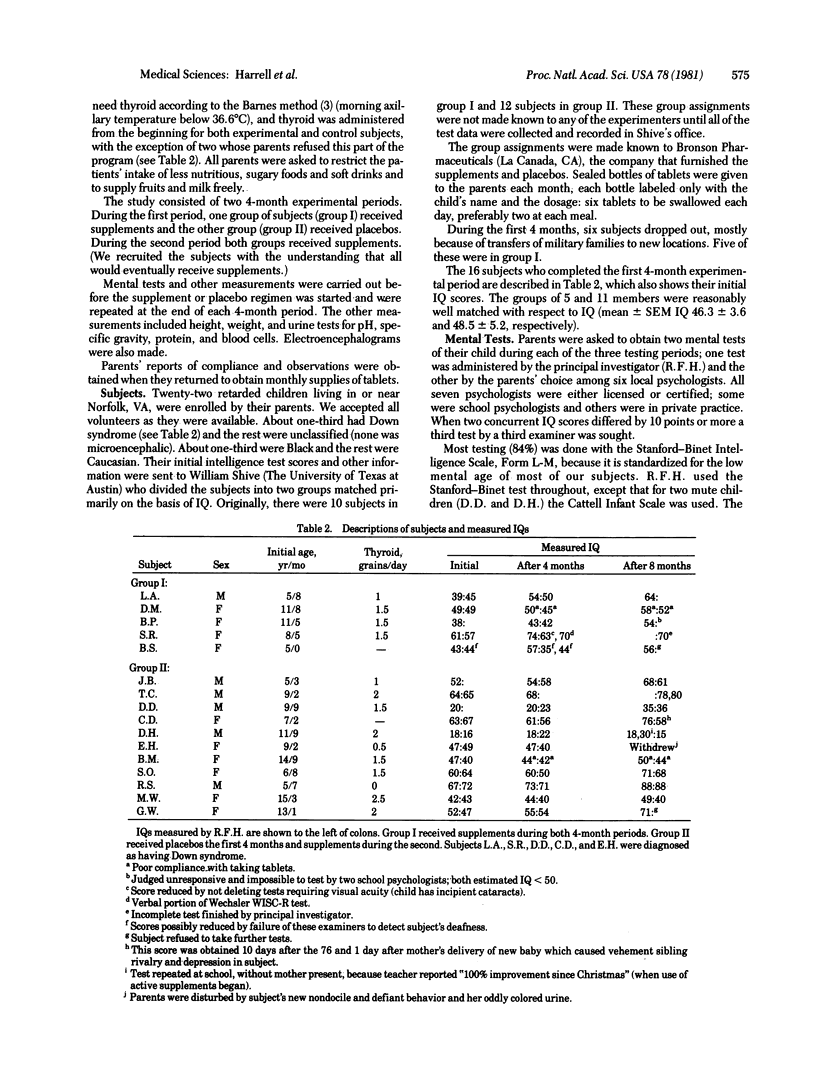
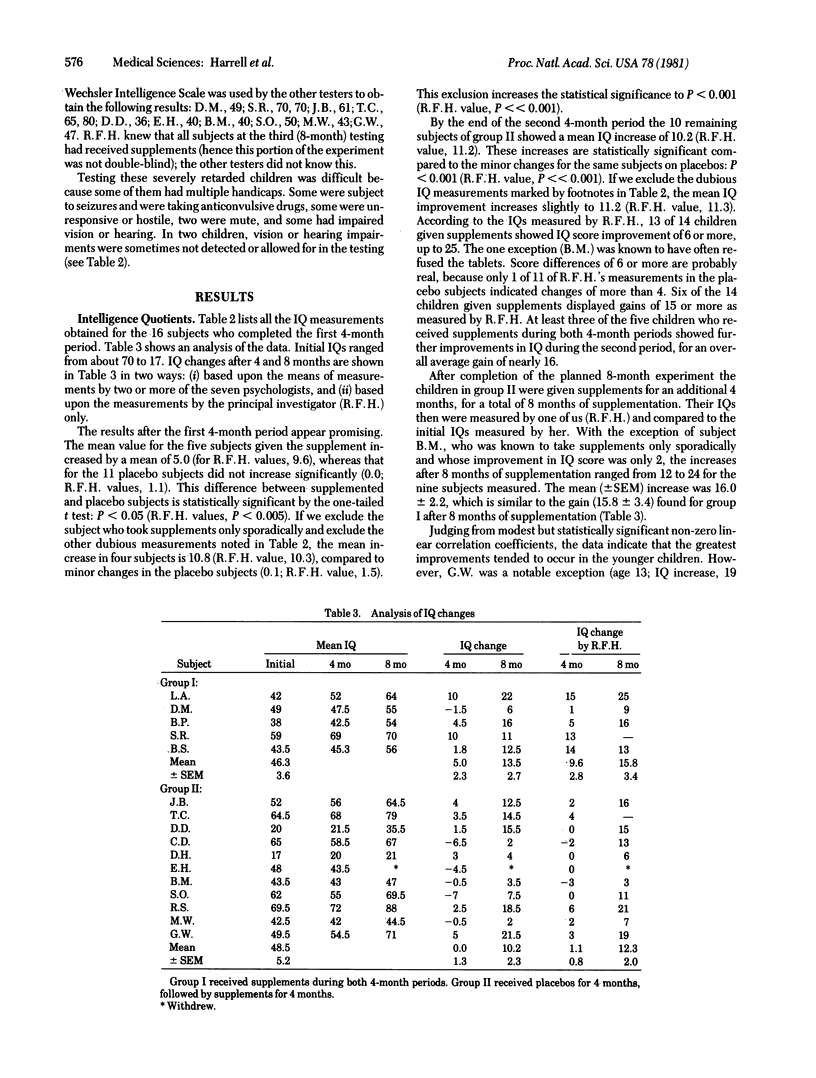
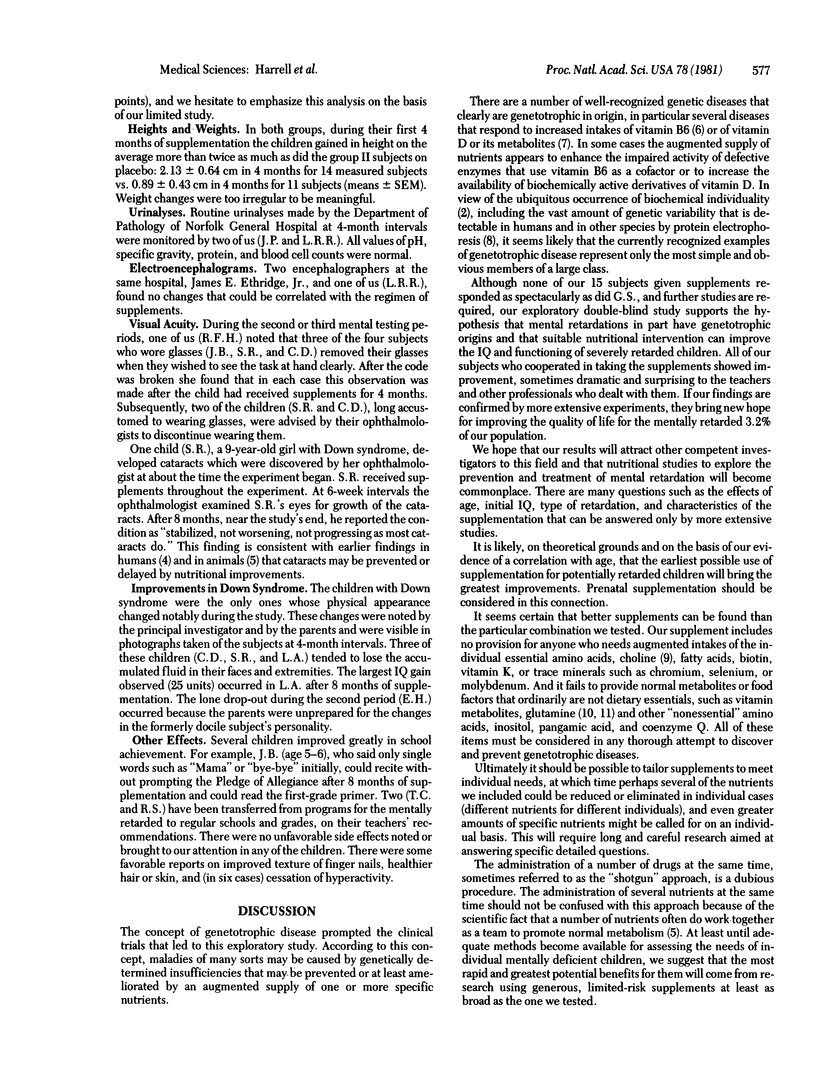
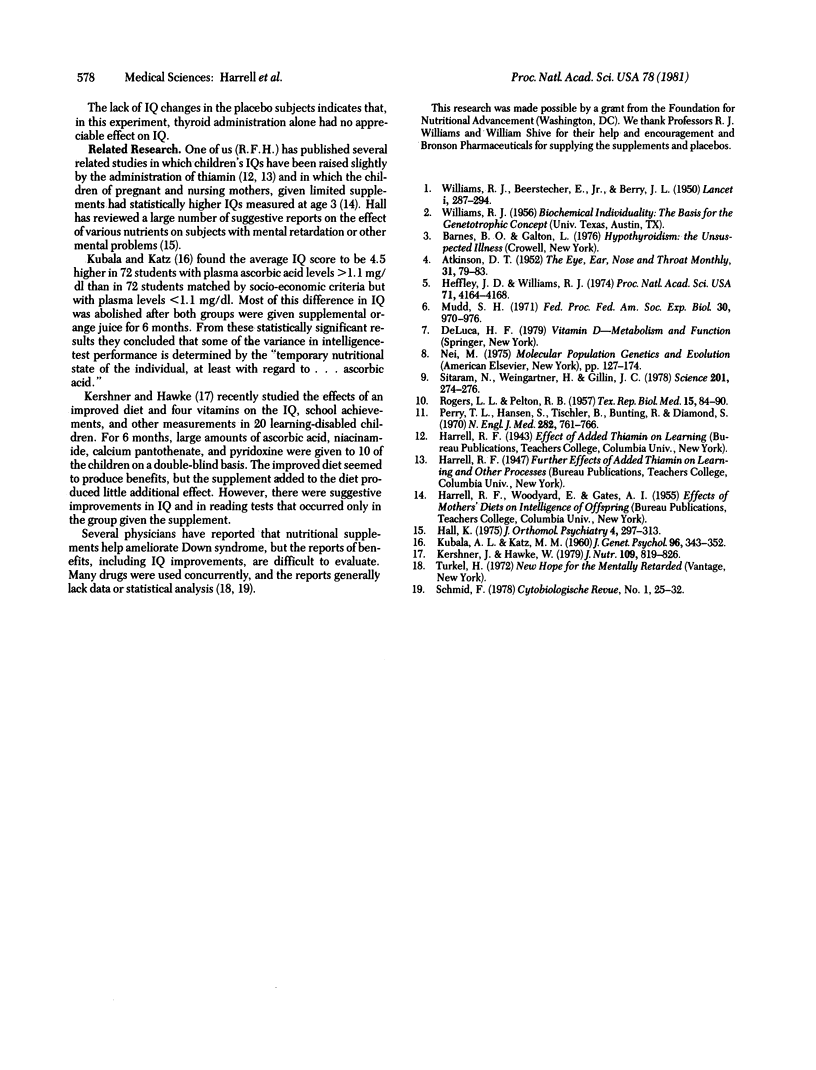
Selected References
These references are in PubMed. This may not be the complete list of references from this article.
- ATKINSON D. T. Malnutrition as an etiological factor in senile cataract. Eye Ear Nose Throat Mon. 1952 Feb;31(2):79–83. [PubMed] [Google Scholar]
- Heffley J. D., Williams R. J. The nutritional teamwork approach: prevention and regression of cataracts in rats. Proc Natl Acad Sci U S A. 1974 Oct;71(10):4164–4168. doi: 10.1073/pnas.71.10.4164. [DOI] [PMC free article] [PubMed] [Google Scholar]
- KUBALA A. L., KATZ M. M. Nutritional factors in psychological test behavior. J Genet Psychol. 1960 Jun;96:343–352. doi: 10.1080/00221325.1960.10534302. [DOI] [PubMed] [Google Scholar]
- Kershner J., Hawke W. Megavitamins and learning disorders: a controlled double-blind experiment. J Nutr. 1979 May;109(5):819–826. doi: 10.1093/jn/109.5.819. [DOI] [PubMed] [Google Scholar]
- Mudd S. H. Pyridoxine-responsive genetic disease. Fed Proc. 1971 May-Jun;30(3):970–976. [PubMed] [Google Scholar]
- Perry T. L., Hansen S., Tischler B., Bunting R., Diamond S. Glutamine depletion in phenylketonuria.A possible cause of the mental defect. N Engl J Med. 1970 Apr 2;282(14):761–766. doi: 10.1056/NEJM197004022821401. [DOI] [PubMed] [Google Scholar]
- ROGERS L. L., PELTON R. B. Effect of glutamine in IQ scores of mentally deficient children. Tex Rep Biol Med. 1957;15(1):84–90. [PubMed] [Google Scholar]
- Sitaram N., Weingartner H., Gillin J. C. Human serial learning: enhancement with arecholine and choline impairment with scopolamine. Science. 1978 Jul 21;201(4352):274–276. doi: 10.1126/science.351808. [DOI] [PubMed] [Google Scholar]
- WILLIAMS R. J., BEERSTECHER E., Jr, BERRY L. J. The concept of genetotrophic disease. Lancet. 1950 Feb 18;1(6599):287–289. doi: 10.1016/s0140-6736(50)91997-0. [DOI] [PubMed] [Google Scholar]


